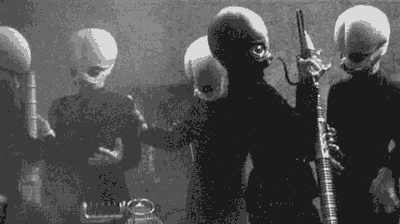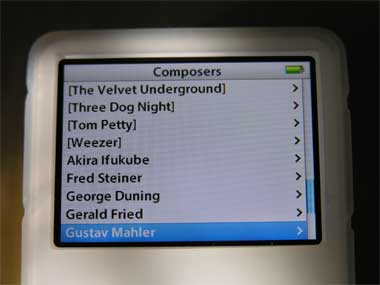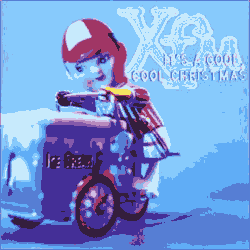
Tis the season and all. Yep, Xmas is around the corner and its related tunes can be heard, sometimes whispering sometimes shouting, from computers and stereos and iPods and speakers in the ceiling at the mall. Old chestnuts, classical interpretations and indie versions all will make their appearances during the next couple weeks, probably to the point of nausea.
They are songs that celebrate the season, reminding us of the wonder and good times of family togetherness or heralding the birth of a certain religious deity. Still others focus on the practices of gift-giving and gift-receiving while encouraging little ones to behave in order to partake in said gifts. Then there’s the jolly fat man in red suit and funny hat; he’s the stern but gentle patriarch who does everything right, is generous with material things and never wants anything in return except maybe some cookies.
But all that unrequited altruism would take its toll on even the most selfless person… or so this one particular Xmas song surmises.
The Night Santa Went Crazy from Weird Al’s 1996 Bad Hair Day tells the narrative, in borderline morbidly graphic detail, of a certain evening in Santa’s Workshop, when the big guy finally loses his cool, going on a rampage from which Xmas will never recover.
This song is perhaps the pinnacle of Weird Al’s songwriting. It is musically exceptional, with astute holiday underpinnings and some of Al’s most remarkably clever lyrics to date. He manages to incorporate and reference the unique culture of the North Pole, successfully transposing it into a scenario that’s half Die Hard, half Headline News.
So I present what is perhaps the best song to queue up when you’re about to overdose on holiday cheer and the thought of good will toward men makes you want to slug someone.
The Night Santa Went Crazy:
[audio:061130SantaCrazy.mp3]

Here are the lyrics if you want to sing along:
Down in the workshop all the elves were makin’ toys
For the good Gentile girls and the good Gentile boys
When the boss busted in, nearly scared ’em half to death
Had a rifle in his hands and cheap whiskey on his breath
From his beard to his boots he was covered with ammo
Like a big fat drunk disgruntled Yuletide Rambo
And he smiled as he said with a twinkle in his eye,
“Merry Christmas to all… now you’re all gonna die!”
The night Santa went crazy
The night St. Nick went insane
Realized he’d been gettin’ a raw deal
Something finally must have snapped in his brain
Well, the workshop is gone now he decided to bomb it
Everywhere you’ll find pieces of Cupid and Comet
And he tied up his helpers and he held the elves hostage
And he ground up poor Rudolph into reindeer sausage
He got Dancer and Prancer with an old German Luger
And he slashed up Dasher just like Freddie Krueger
And he picked up a flamethrower and he barbequed Blitzen
And he took a big bite and said, “It tastes just like chicken!”
The night Santa went crazy
The night Kris Kringle went nuts
Now you can hardly walk around the North Pole
Without steppin’ in reindeer guts
There’s the National Guard and the F.B.I.
There’s a van from the Eyewitness News and helicopters circlin’ ’round in the sky
And the bullets are flyin’, the body count’s risin’ and everyone’s dyin’ to know, oh Santa, why?
My my my my my my
You used to be such a jolly guy
Yes, Virginia, now Santa’s doing time
In a federal prison for his infamous crime
Hey, little friend, now don’t you cry no more tears
He’ll be out with good behavior in 700 more years
But now Vixen’s in therapy and Donner’s still nervous
And the elves all got jobs working for the postal service
And they say Mrs. Claus, she’s on the phone every night
With her lawyer negotiating the movie rights
They’re talkin’ ’bout – the night Santa went crazy
The night St. Nicholas flipped
Broke his back for some milk and cookies
Sounds to me like he was tired of gettin’ gypped
Wo, the night Santa went crazy
The night St. Nick went insane
Realized he’d been gettin’ a raw deal
Something finally must have snapped in his brain
Wo, something finally must have snapped in his brain
Tell ya, something finally must have snapped… in his brain







